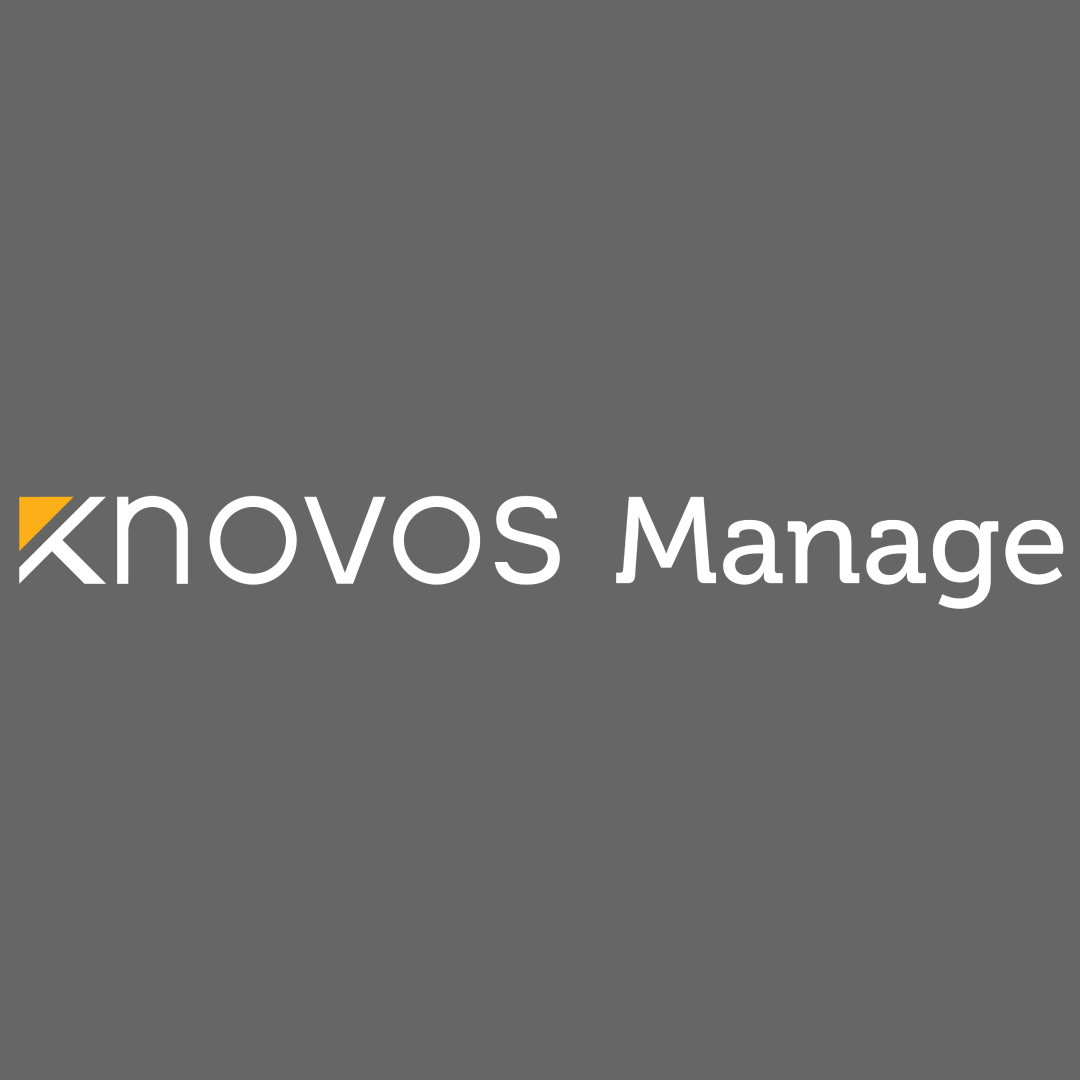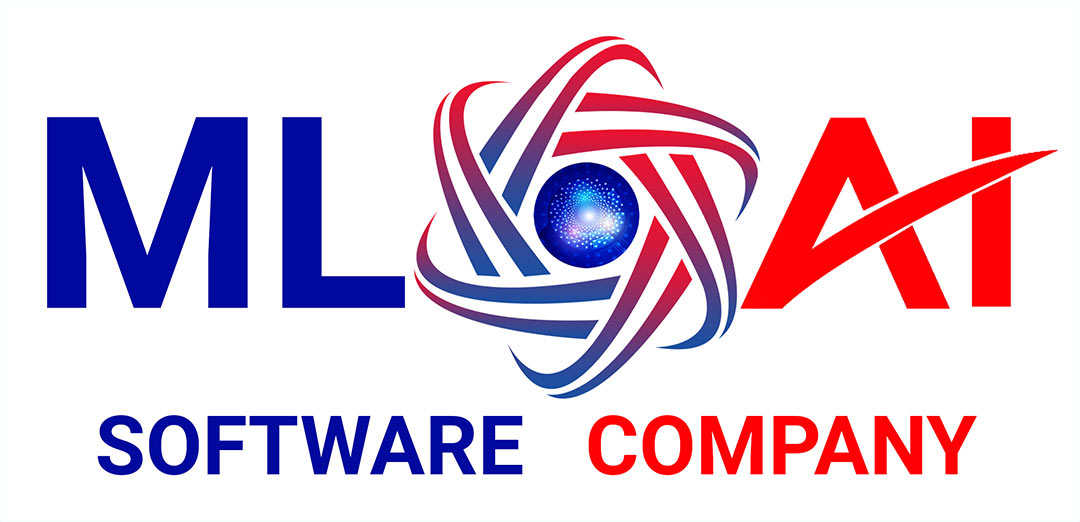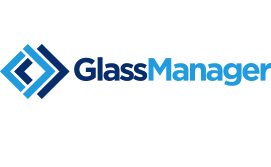Yes, client management software can be accessible from different devices and platforms, making it more convenient for organizations. This means that customers can use the software on their desktop, laptop, tablet, or smartphone, regardless of the operating system they are using. Whether you're at the office or on the go, you can easily stay connected and handle customer data. This function significantly increases productivity and improves client connections.
List of 20 Best Client Management Software
Knovos Manage, a top-of-the-line project management and business intelligence solution. Utilize its advanced task automation, adaptable resource allocation, and extensive communication features to handle projects of any scale and intricacy. Benefit f...Read More Knovos Manage
Nifty is a project management tool designed to enhance your teams productivity. Our software streamlines workflows, enabling seamless collaboration and efficient communication. With features like task consolidation, deadline tracking, and workload tr...Read More Nifty
MLAI VISITOR MANAGEMENT solution for managing visitors in any setting. Our advanced contactless and QR code-based system enables visitors to easily check in on their own. With a seamless admin panel, tracking check-ins and check-outs becomes effortle...Read More MLAI VISITOR MANAGEMENT
Anywhere, the premier project management software designed for growing industries. Keep your projects organized and efficient by easily managing multiple clients. Bring all your teams together in a single workspace for seamless collaboration and enha...Read More Anywhere
Moxo solution for streamlining operations, enhancing client relationships, and ensuring top-notch security. This versatile platform caters to businesses in regulated industries, simplifying processes and boosting productivity. With a stellar track re...Read More Moxo
Act! is solution for small businesses looking to expand, offering reliable CRM and powerful Marketing Automation. With a long history of success in the small business software field, Act! delivers advanced capabilities, unmatched flexibility, and mor...Read More Act!
Pike13 is a cloud-based client management software designed for optimal mobile usage. It simplifies tasks such as attendance tracking, payment and staff payroll management, and report generation. The software also offers branded and staff apps for a...Read More Pike13
Say hello to HoneyBook solution for managing your business! With our platform, you can say goodbye to the hassle of using multiple tools for client communication, project tracking, and invoicing. Our user-friendly interface and automation features fr...Read More HoneyBook
monday sales CRM solution for sales managers and teams seeking to enhance their sales process. This powerful tool enables you to take charge of the entire sales cycle, from generating leads to communicating with clients, effortlessly. Say farewell to...Read More monday sales CRM
Nutshell CRM is a sales tool designed to boost productivity and help sales teams reach their targets. Tailored for small businesses, it prioritizes ease of use and affordability. With seamless integration with Google G Suite and Microsoft Office/Outl...Read More Nutshell CRM
Gridle is a client management solution for Agencies and Freelancers. Simplify your lead and customer management process with centralized platform. Easily create, send, and track proposals and invoices. Streamline your business operations and increase...Read More Gridle
oClient is a sales solution to drive your business forward! Through its reliable real-time sales and customer data tracking, youll never miss out on a sale. Streamline your billing, effectively manage clients, team members, and partners with ease usi...Read More oClient
Ahsuite solution for streamlined client collaboration. Our platforms client portals allow for quick and easy creation, with a clean and intuitive interface perfect for seamless communication. Simplify your workflow with powerful yet user-friendly fea...Read More Ahsuite
Microsoft Dynamics 365 Field Service solution for optimizing resources, tracking routes, scheduling jobs, and managing inventory. With its robust reporting tools and seamless service operations management, this field service management software promo...Read More Microsoft Dynamics 365 Field Service
RedTail CRM - a game-changing CRM software specifically designed for financial advisors. Operate seamlessly and efficiently with automated tasks and easy integration. With its user-friendly interface and top-notch customer service, managing client co...Read More RedTail CRM
Mercaux is a digital transformation tool designed to enhance the retail experience for brands. It enables seamless integration between online and offline channels, creating a unified and frictionless shopping journey for customers. With Mercaux, bran...Read More Mercaux
eClinic is a healthcare management software for hospitals and clinics. Boost your organizations growth with our comprehensive platform that offers virtual presence and all the essential tools for streamlined operations. Enhance patient care and optim...Read More eClinic
vCita - the essential customer management tool for businesses looking to elevate their customer experience. Our user-friendly platform allows for efficient scheduling and streamlined client management, enabling you to easily interact with your custom...Read More vCita
Clubworx is a top-notch yoga studio software that helps boost your business while reducing the time and energy spent on member retention. This user-friendly platform automates tedious tasks, freeing up your time to provide exceptional services. The s...Read More clubworx
GlassManager, the premier software solution for all glass companies. Our comprehensive platform is ideal for both Commercial and Residential purposes, seamlessly optimizing your business processes to increase efficiency and reduce costs. Say farewell...Read More GlassManager
Learn More About Client Management Software
- What Is Client Management Software?
- What Are The Recent Trends In Client Management Software?
- Benefits Of Using Client Management Software
- Important Factors To Consider While Purchasing Client Management Software?
- What Are The Key Features To Look For In Client Management Software?
- Why Do Businesses Need Client Management Software?
- How Much Time Is Required To Implement Client Management Software?
- What Is The Level Of Customization Available In Client Management Software?
- Which Industries Can Benefit The Most From Client Management Software?
- Conclusion
What Is Client Management Software?
customer Management Software (CMS) is a strong technology that allows firms to successfully manage and sustain customer relationships. This software can range from simple contact management systems to comprehensive customer relationship management (CRM) platforms, with a diverse set of features and functionalities to meet a variety of client management requirements.
CMS is essentially a centralized database that stores all pertinent client information, such as contact information, communication history, purchase history, preferences, and so on. This gives organizations a comprehensive perspective of their clients and their interactions, allowing them to make more informed decisions and provide a more tailored experience.
One of the primary advantages of CMS is its ability to expedite and automate a variety of client management functions, including lead creation, sales tracking, and customer care. This not only saves time and resources, but also guarantees consistency and correctness in client data and communications. Another significant feature of CMS is its reporting and analytics capabilities.
Businesses that track and analyze client data can acquire significant insights into their customers' behavior, tastes, and needs, allowing them to modify their marketing and sales activities accordingly. When choosing a CMS for your organization, it's critical to evaluate your individual requirements and select software that best meets them. Some key features to look for are contact management, communication tracking, task management, reporting and analytics, and integration with other business tools.
What Are The Recent Trends In Client Management Software?
Client management software has become an indispensable resource for organizations of all sizes and sectors. As technology advances and consumer expectations shift, the customer relationship management (CRM) landscape evolves dramatically. As a prospective buyer of client management software, it is critical to stay current on these developments in order to make an informed purchase for your organization.
Here are some recent trends in client management software that you should be aware of.
1. Cloud-Based Solutions: One of the most significant trends in client management software is the transition to cloud-based solutions. These software solutions are hosted on the internet, so businesses do not need to invest in expensive hardware and IT infrastructure. Cloud-based client management software has various advantages, including improved accessibility, scalability, and cost savings.
2. Mobile Compatibility: With the advent of remote work and the widespread usage of mobile devices, client management software that can be accessed and utilized on smartphones and tablets has become a necessity. Companies are looking for client management software that allows sales and customer care representatives to view and update customer information on the fly.
3. Artificial Intelligence: (AI) and automation are reshaping the client management landscape. AI-powered client management software can now analyze customer data, forecast sales tendencies, and automate processes such as lead creation, email communication, and more. This not only streamlines company procedures, but also allows firms to give a more personalized and efficient experience to their customers.
4. Integration With Other Tools: In today's fast-paced corporate world, having an all-in-one client management software is insufficient. Companies are now searching for software that works well with other tools they employ, such as marketing automation, social media management, and project management software. This integration increases efficiency, avoids duplicate data entry, and gives a more complete picture of client interactions.
5. Prioritize Customer Experience: As competition heats up, organizations must prioritize providing a favorable and individualized client experience. As a result, client management software companies now offer tools like customer journey mapping, sentiment analysis, and social listening to help organizations better understand their consumers and create a more personalized experience.
Benefits Of Using Client Management Software
Client management software is a strong tool that may help organizations of any size or industry. It is intended to streamline and improve the management of client relationships, making it an essential tool in today's fast-paced business environment. In this buyer's guide, we'll look at the primary advantages of utilizing client management software and how it can help you reach your business objectives.
1. Centralized Client Data Management: One of the primary benefits of adopting client management software is the ability to keep all client-related data in a one area. This removes the need for several spreadsheets or paper files, saving time and lowering the possibility of mistakes. With a few clicks, you may get detailed client information, such as contact information, communication history, sales history, and so on.
2. Improved Client Communication: Client management software also includes capabilities that help with client communication, such as email templates, automated reminders, and job scheduling. This guarantees that your team is on top of client communication, which leads to better customer service and more client satisfaction.
3. Better Organization And Efficiency: Manual client handling can be time consuming and error-prone. Client management software's automation and organizing capabilities can help you save time and reduce the chance of errors. This increases efficiency and productivity, allowing your staff to focus on other critical business responsibilities.
4. Data Analysis & Reporting: Client management software delivers useful insights into your clients' data, allowing you to make more educated business decisions. Customizable reporting features can help you better understand your customer base, their needs, and areas for improvement. This information can also help you track sales performance and identify your most profitable clients.
5. Enhanced Security: When dealing with sensitive client information, security is a primary responsibility. Client management software provides safe data storage, backup, and encryption to protect your clients' information from unauthorized access or cyber attacks. You may also set access levels so that only designated team members have access to secret information.
6. Scalability And Customization Options: Your client relationships will expand alongside your business. Client management software is intended to meet the demands of organizations of all sizes, with the ability to scale as the firm grows. Furthermore, many software suppliers offer customization possibilities, allowing you to modify the software to your exact business requirements.
Important Factors To Consider While Purchasing Client Management Software?
When it comes to client management, using the correct software can make all the difference. Client management software enables businesses of all sizes and industries to streamline and optimize their client relationships, resulting in increased efficiency and production. However, with so many options on the market, it can be difficult to select the best client management software for your organization.
To make an informed decision, below are the main elements to consider when selecting client management software:
1. Business Needs And Goals: Before investing in any software, you must first understand your company's needs and goals. This will assist you in determining the important features and functionalities you require in a client management software. For example, if you mostly work with offline clients, you might prioritize capabilities like in-person meeting scheduling and offline data syncing. Knowing your business demands and goals will help you invest in software that actually meets your needs.
2. User-Friendly Interface: Your team's effective implementation and acceptance of client management software depends on its user-friendliness. The program should be simple to navigate and operate, with little training needed. Look for software with a visually appealing and easy-to-use interface that streamlines client management.
3. Compatibility And Integration: Make sure the client management software is compatible with your existing systems and tools. The software should be able to interact easily with your CRM, email marketing, and other necessary technologies in order to minimize data silos and enable efficient workflow management.
4. Cloud-Based Or On-Premise: Client management software is available in both cloud and on-premise versions. Cloud-based software is hosted on the vendor's server and can be accessed from any internet-connected device, whereas on-premise software is installed and controlled on the company's own server. Before making a decision, weigh the advantages and disadvantages of each option in light of your business needs and budget.
5. Security Measures: Because client management software holds sensitive information, security is a high issue. To safeguard your data from cyber dangers, make sure the software uses strong encryption and other security features. Furthermore, the vendor should have appropriate data backup and disaster recovery policies in place to avoid data loss.
6. Reliable Customer: Assistance and training are critical for the successful adoption and use of client management software. Look for vendors who provide comprehensive training and continuous support, such as technical assistance and troubleshooting, in the event of any software concerns. By taking these crucial elements into account, you may choose the best client management software that meets your company's demands, improves your client management operations, and assists you in reaching your objectives.
What Are The Key Features To Look For In Client Management Software?
Client management software enables firms to properly manage and sustain client relationships. With so many options available on the market, it might be difficult to select the best one for your organization. To make an informed decision, below are the essential characteristics to look for in client management software:
1. Contact Management: customer management software must be capable of storing, organizing, and updating customer contact information. Look for tools like configurable fields, tagging, and segmentation to help you categorize and search for contacts.
2. Communication Tools: Clear communication is vital for maintaining client connections. Look for software that provides many communication channels, such as emails, text messages, and phone conversations, all from a one platform. This will save you time while also ensuring that you communicate consistently with your clients.
3. Task And Project Management: A decent client management software should have task and project management features to assist you keep track of deadlines and deliverables. Look for tools like work assignment, progress monitoring, and reminders to help you and your team stay organized.
4. Sales And Marketing Tools: Using integrated client management software can significantly improve the efficiency of your sales and marketing activities. Look for tools like lead management, email marketing, and analytics to help you measure and improve your sales and marketing campaigns.
5. Data And Reporting: The capacity to gather and analyze data is critical for understanding and developing client interactions. Look for software that has reporting tools for monitoring KPIs like client interactions, conversions, and customer satisfaction.
6. Customization And Integration: Because each organization has unique demands and operations, it is critical to look for software that can be tailored to your specific requirements. Additionally, ensure that the software can interact with other products and platforms that your company utilizes to ensure a smooth workflow.
7. User-Friendly Interface: A user-friendly interface is critical to ensuring that the program is adopted and used smoothly by your staff. Look for software that is intuitive, visually appealing, and simple to use.
Why Do Businesses Need Client Management Software?
Client Management Software, often known as Customer Relationship Management Software, is a critical tool for businesses of all kinds. In today's extremely competitive market, where clients have unlimited options and demands, firms must effectively manage their client relationships. customer Management Software is primarily used to assist organizations streamline their procedures, increase efficiency, and develop stronger customer connections.
Let's look at why investing in this software is a good idea for your organization.
1. Centralized Client Information Management: Client Management Software enables firms to keep all client information in a single, centralized location. This eliminates the need for several spreadsheets and documentation, allowing you to easily access and update essential customer data in real time. This function is particularly useful for firms with a big customer base, as it ensures that no client is missed or forgotten.
2. Improved Communication And Collaboration: Having all client information in one location allows organizations to effortlessly communicate and work with their customers. The program provides a variety of communication methods for efficiently engaging with clients, ranging from targeted email campaigns to personalized messaging. This contributes to the development and maintenance of stronger client relationships, resulting in enhanced customer satisfaction and retention.
3. Effective Sales And Marketing Strategies: A strong Client Management Software allows organizations to track client interactions, purchases, and preferences. This data can then be used to create more targeted and tailored sales and marketing tactics, resulting in better conversions and sales. Furthermore, the program enables firms to evaluate customer behavior and uncover chances for cross-selling and upselling.
4. Time And Cost Savings: Manually managing client information and communication can be time consuming and error-prone. Client Management Software allows firms to automate a variety of processes, freeing up staff' time to focus on more important responsibilities. Furthermore, this software can monitor critical parameters, providing significant insights that can assist optimize procedures and lower total expenses.
5. Improved Customer Service: In today's digital world, clients want smooth and individualized interactions with businesses. Client Management Software enables organizations to swiftly collect and access critical client data, allowing them to provide better and more personalized services to their customers. This increases consumer happiness and loyalty, which has a beneficial impact on the company's bottom line.
How Much Time Is Required To Implement Client Management Software?
The time required to adopt client management software varies based on a number of factors, including the size of your organization, the complexity of your procedures, and the program's capabilities. On average, it can take several weeks to months to properly incorporate and integrate client management software into your business operations.
First and foremost, it is critical to understand that the implementation process is not a one-size-fits-all solution. Every organization has distinct goals and requirements, and the time it takes to adopt client management software is determined by how well the program meets those demands. The size of your firm is one of the most important elements that might influence implementation time.
If you are a small business with a small number of clients and a straightforward procedure, the installation process can be done fast. However, if you are a larger company with a high client traffic and complex operations, it may take longer to properly implement the software and guarantee it matches your specific requirements. The intricacy of your operations is another important consideration in influencing implementation time.
If your company has several departments and performs various duties such as lead generation, sales, and customer service, it may take longer to customize the software to meet your procedures effectively. Furthermore, the client management software's features have a considerable impact on implementation time. Some software may have more complicated features and integrations that take more time and effort to set up, whereas others may offer a user-friendly interface that simplifies the installation process.
The implementation process must be overseen by a specialized team or individual. To ensure a smooth and efficient integration, this person should be well-versed in your company's operations as well as the software. Finally, the time necessary to establish client management software varies depending on the organization.
To guarantee a successful installation, you must thoroughly examine your business requirements and select software that can properly accommodate them. With good preparation and a dedicated staff, you can anticipate the software to be fully integrated and operational in a matter of weeks, offering your company with more efficient client management procedures.
What Is The Level Of Customization Available In Client Management Software?
When it comes to client management software, purchasers must examine the level of customisation available. This refers to the software's capacity to be adapted to the user's personal needs and preferences, hence optimizing their experience and meeting their unique requirements. The level of customization offered by client management software varies greatly depending on the provider and the product.
However, there are some critical areas where customisation may be possible. For starters, many client management software systems have customized user interfaces, allowing customers to tailor the style, color scheme, and options available on their dashboard. This can help to enhance the user experience and streamline the workflow.
Second, organizations may be able to adapt the software's data fields and categories to meet the needs of their specific industry or client. This can help to guarantee that the software is better suited to the user's business processes and enables more effective data management. Additionally, many client management software suppliers allow you to modify certain areas of customer contact.
This may include branding options for emails and documents, as well as the opportunity to customize client portals with company logos and information. Furthermore, some software may provide the capacity to produce bespoke reports and analytics, allowing organizations to track and analyze data in the most useful way for them. Buyers should carefully assess the level of flexibility offered in client management software and decide which features are critical to their business. This will help guarantee that the software they choose is a suitable fit and can be adapted to their individual requirements and tastes.
Which Industries Can Benefit The Most From Client Management Software?
Client management software is an extremely useful tool for enterprises and organizations of all kinds. Certain businesses, however, have specific requirements and might tremendously benefit from incorporating such software into their processes. Let's look at some of the industries that will gain the most from client management software.
1. Consulting Firms: Strong client relationships are critical to consulting organizations' survival and growth. When you have several clients and projects to manage, it can be difficult to keep track of everything and communicate effectively. Client management software can help by offering a consolidated location for storing client information, tracking project progress, and scheduling appointments and meetings.
2. Healthcare: In the healthcare industry, patient care comes first. Healthcare professionals can use client management software to handle patient information, appointments, and treatment plans. It can also help to streamline administrative activities like arranging appointments and sending reminders, allowing professionals to focus on providing quality care.
3. Real Estate: Real estate agents and firms must manage a vast number of properties, listings, and transactions for their clients. Client management software can be quite useful for organizing client data, tracking leads, and managing properties. It can also help you schedule appointments and send automated follow-up emails.
4. Law Firms: Law firms handle a large amount of client data, including cases, court dates, and legal papers. Client management software can help lawyers keep organized by offering a consolidated database for storing and accessing all client data. It can also help with deadline management, appointment scheduling, and client communication.
5. Event Planning: Event planning entails coordinating numerous clients, vendors, and event details. Client management software can help event planners stay organized by offering a platform for tracking client information, creating and managing contracts, and keeping track of event specifics. It can also assist in sending reminders and bills, making the overall event planning process more effective.
6. Education: Educational institutions, such as schools and colleges, have a huge student population to manage. Client management software can help you keep track of student information, enrollment data, grades, and attendance. It can also help with organizing meetings and shared calendars so that students, teachers, and parents can stay connected.
Conclusion
To summarize, investing in client management software can significantly benefit your company by reducing operations, increasing efficiency, and improving customer happiness. When selecting the correct software for your firm, you should analyze your company's specific demands and goals, as well as the software's features and capabilities.
First and foremost, identify the flaws with your present client management system and select software that addresses them. Whether you need better organization and storage of customer information, automated processes, or greater communication, make sure the software has the solutions you require. Next, assess the software's scalability.
As your company grows, your client management requirements may alter, so select software that can support future development and expansion. In addition, consider the software's usability as well as the provider's degree of support and training. Your team must be comfortable using the program for it to be effective, and having access to dependable customer service and training resources may make a big difference.
Additionally, examine the software's integration possibilities. It should be able to interact smoothly with your current systems and operations, reducing disruptions and increasing efficiency. Finally, consider the cost and return on investment of the program. While funding is vital, it is also critical to evaluate the long-term benefits and savings that the software can offer.
By carefully examining these characteristics and picking a renowned and dependable provider, you can make an informed selection and select the best client management software for your company's growth. Remember to constantly analyze and evaluate the software's effectiveness to verify that it is meeting your changing requirements. With the appropriate client management software, you can streamline your procedures and improve the customer experience for long-term success.
Client Management Software FAQ's
Can Client Management Software Be Accessed Across Multiple Devices And Platforms?
Is Client Management Software Future-Proof And Adaptable To Emerging Technologies Like Ai, Blockchain Or Iot?
Yes, client management software is built to be future-proof and adaptable to new technologies like AI, blockchain, and IoT. This is feasible thanks to its adaptability and ability to integrate with other systems. Client management software is updated on a regular basis to incorporate new features and capabilities as technology advances. This ensures that it remains relevant and flexible to the changing technological landscape, resulting in a worthwhile investment for enterprises.
Is There A Free Trial Offered To Assess Client Management Software Before Committing?
Yes, many client management software vendors provide a free trial period before you commit to their services. This enables organizations to test the program and its features to determine whether it satisfies their specific requirements. During the trial, organizations can evaluate the user interface, client communication tools, and other features to see whether the program is a good fit for their needs. It is critical to take advantage of a free trial offer to check that the chosen client management software meets your business needs.
Does Client Management Software Offer Data Security Features And Meet Regulatory Compliance Standards?
Yes, most client management software includes data security features including encryption of important information and firewalls to protect against cyber assaults. They also offer regular data backups, user authentication mechanisms, and audit trails to assure industry compliance. Furthermore, many software businesses conduct third-party security audits to confirm their data protection safeguards. With trustworthy client management software, you can be confident that your customer data is secure.
Can Client Management Software Integrate Seamlessly With Existing Tools And Platforms?
Most client management software is designed to work easily with existing tools and platforms. This implies you won't have to fully redesign your current procedures or systems to use the program. In fact, many client management software provides a variety of interfaces, including email providers, CRM systems, accounting software, and others. This enables a more simplified and effective approach, saving you significant time and effort.






















